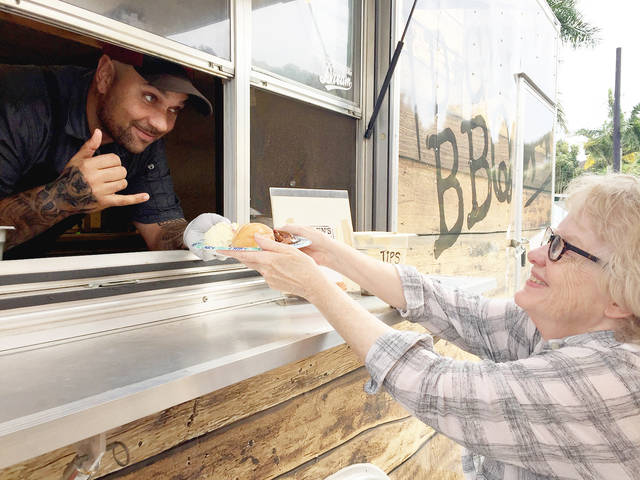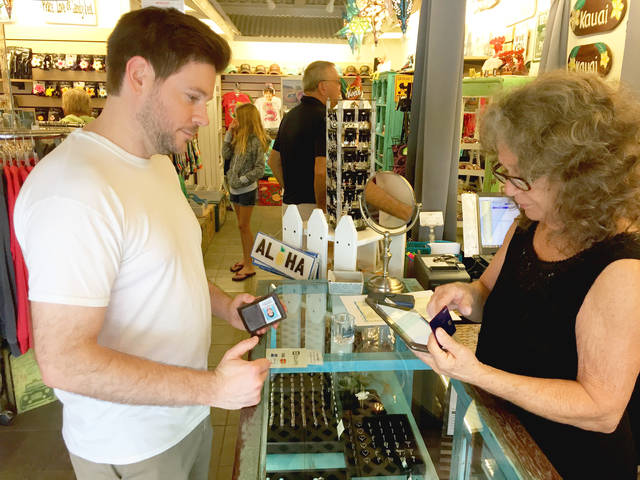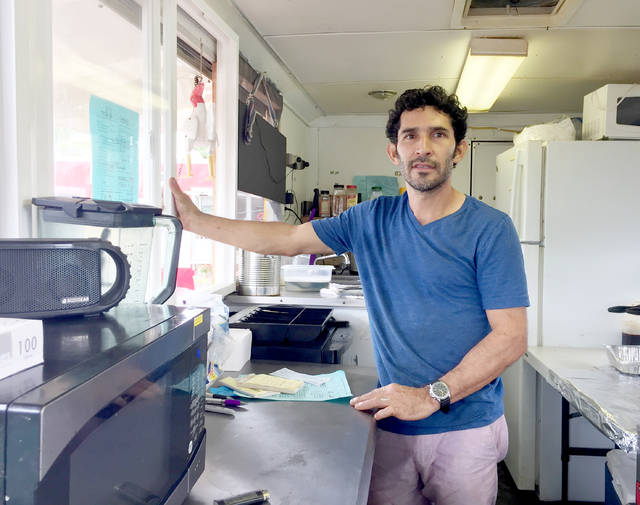Island economy depends heavily on tourism




LIHUE — The increasing number of visitors to Kauai continues to impact the island’s economy and infrastructure.
LIHUE — The increasing number of visitors to Kauai continues to impact the island’s economy and infrastructure.
Nearly 80 percent of the business at Poipu Beach’s Brenneckes Beach Broiler and Nukumoi Surf Co. comes from tourism, according to owner Bob French. The restaurant, operating since 1982, sold almost 500 meals on Tuesday and sales at his surf shop have been very strong all year, especially for beachwear and board rentals. His businesses employ approximately 100 people.
“Years ago we used to have a swing, there were highs and there were lows,” French said. “It has not been that way this year, and I don’t foresee it to be that way in the future, because Kauai has become very popular.”
In the month of October, about 737,000 visitors to the Hawaiian Islands spent a total of $1.3 billion, according to statistics released by the Hawaii Tourism Authority. During the first 10 months of this year, nearly 7.8 million statewide visitors spent $13.86 billion with daily spending averaging $200 per person.
“From the residents’ standpoint it’s really busy, the roads are busy,” French said. “Our government doesn’t seem to want to help out with the infrastructure that it takes to support a good tourist economy.”
Darren Green, chef and owner of D Green BBQ in Koloa Town, said his business is comprised of half tourists and half locals.
“I try not to rely on the tourist dollar, because my prices are more centered around the local economy, and not everybody that’s local can afford to go out to eat,” he said. “If the tourists come, it’s great. If not, I’m happy to be here to give the locals some good food.”
Before the island can accommodate more increases in tourism, Green hopes proper planning addresses traffic congestion and parking dilemmas for tourists.
“There isn’t a huge emphasis on the infrastructure in Kauai. It’s kind of a last resort; wait for it to break and then we’ll fix it,” Green said. “That just means things move a lot slower and nothing happens overnight here.”
He thinks residents are grateful to have business from tourism, but officials need to plan accordingly for continued increases. “They didn’t really think about where these people are going to park, where they are going to use the bathroom, where we are going to put our garbage,” he added.
The average daily census increased to nearly 25,000 Kauai visitors per day with over half of these visitors staying exclusively on island. Visitor arrivals increased from the U.S. Mainland, Japan and Canada, according to the Tourism Authority. Half of those who visited stayed in hotels, and 85 percent of the visitors were here for vacation. Repeat visitors comprised about 70 percent, according to HTA’s Annual Visitor Research Report.
“With the demise of the sugar industry many years ago, tourism has grown into the top economic driver for the island of Kauai,” said Sue Kanoho, executive director for Kauai Visitors Bureau.
“Having been through Hurricane Iniki and watching the island’s unemployment spike from 5 percent pre-Iniki to almost 50 percent following the hurricane in 1992, I have seen what one event can do to an island’s economy,” she said. “In fact, it took almost 10 years to regain stable numbers for our island.”
The busiest month for visitors to Kauai in 2016 was July (29,200 visitors daily), followed by June (29,173 visitors daily) and January (28,102 visitors daily), according to HTA’s Annual Visitor Research Report. Although residents are seeing related increases in prices, traffic and congestion, Kauai’s economy still depends heavily on the tourism industry.
“Make no mistake, our businesses would suffer without tourism,” said Mark Perriello, president and CEO of the Kauai Chamber of Commerce. “More vacant storefronts with boarded-up and broken windows would litter your town centers. Without tourists there would be fewer jobs and many families, already struggling to make ends meet, would find it even harder to put food on their table.”
According to the State of Hawaii Workforce Infonet, the 2016 annual average of jobs in leisure and hospitality industries totaled more than 118,000, with nearly 40,000 people employed in accommodations, while food and drink services averaged about 66,000 employees.
“As of October, visitors have injected $1.54 billion into the Kauai community in 2017. We depend on this money to create jobs and to keep our economy thriving,” Perriello said.
“Tourism represents life-giving breath to our island economy,” he said. “Whether you work for a company that deals directly with tourists or not, most all of us depend on the dollars generated by the tourist economy for our livelihood in one way or another.”
Visitor arrivals are surging to record highs, and unemployment is reaching new lows, says UHERO, the economic research organization at the University of Hawaii. While families are benefiting from improved employment prospects, many have yet to see significant income growth, according to its Annual Hawaii Forecast.
“In terms of impact, we are talking about roughly a quarter of Kauai employment is directly due to Hospitality and Tourism,” said Dr. Carl Bonham, UHERO executive director and economics professor at University of Hawaii. “The drop in visitor arrivals from 1.3 m in 2007 to .93 million in 2009, jobs fell from by almost 10 percent. Some of those jobs were the result of the end of the housing bubble, but 1,000 jobs were lost in the accommodation and food service sector, and hundreds more were lost in transportation.”
Now the economic expansion is well into its eighth year, and all indications show continued growth at a slower pace. Additions to airline and room capacity have facilitated a sustained surge in the number of visitors, but spending continues to lag, even as visitor numbers stress infrastructure.
“Last year was down almost 30 percent for me, recently it’s been OK but not like it was three or four years ago,” said Miquel Baldera, owner of Chalupa’s Mexican Food.
His total sales are attributed to about 80 percent visitors. The popular Koloa food truck has been operating for six years and serves up to 120 meals daily.
“If tourists don’t come here, it will be a big impact to our pockets, money-wise,” he said. “We would have to probably close our business.”
Baldera knows visitors are vital to Kauai’s economy but acknowledges they are also driving up the price of goods, making it even harder for locals to get by.
“We also rely on the locals, that’s why we give a little percentage discount,” he said. “Sometimes for locals it’s too expensive here, they cannot afford to eat out every day.”
Visitors continue arriving, with the total number of air seats serving Hawaii rising to 962,692 in October. In 2018, arrivals from the U.S. and Japan will grow at about half their 2017 pace, while improving economic conditions in the Asia-Pacific region will sustain moderate growth for emerging markets, according to UHERO.
“There are so many factors that can affect tourism on Kauai: global challenges, pricing, competition from other destinations, strikes from airlines, disasters in our top markets,” Kanoho said. “Our location in the middle of the Pacific makes our island vulnerable to so many issues. When tourism has declined significantly, we have seen people move from the islands, close businesses, lay off workers, etc.”
According to Kanoho, the positive direct impacts include more jobs, higher wages and economic support through taxes, while indirect impacts support non-profit organizations, community work and employees serving on boards donating their time.
“The challenge becomes managing the infrastructure, along with the growth in residents, as well as visitors to keep a strong balance for our island community,” Kanoho said.

